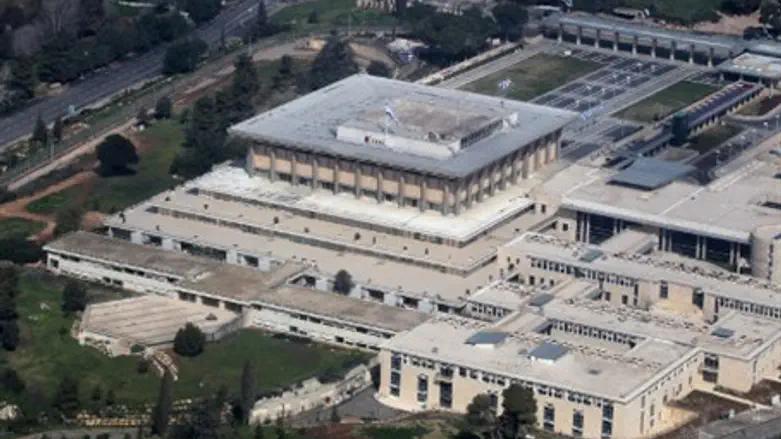
President Barack Obama for the seventh time has exercised the “security” waiver allowing him to ignore a Congressional law that the U.S. embassy be relocated to Jerusalem.
The 1995 law requires the embassy to be located in the capital unless the president decides that doing so would endanger national security. Every American president has exercised the waiver but no detailed explanation has been offered as to why moving the embassy would endanger U.S. security.
The law states, “The President may suspend such limitations for an additional six-month period at the end of any period during which the suspension is in effect under this subsection if the President determines and reports to Congress in advance of the additional suspension that the additional suspension is necessary to protect the national security interests of the United States.”
A new bill was introduced in Congress in March 2011 to discontinue the waiver, but the bill has not been passed into law.
The issue has become more of a political hot potato as the U.S.-sponsored “peace process” appears to be dead and buried, leaving the American administration in a position of being seen by the Arab world as “capitulating” to Israel by carrying out the Congressional law.
President Obama was the first president who did not make a campaign pledge to move the embassy, although midway in his campaign he appeared to do so.
He told American Israel Public Affairs Committee (AIPAC) in 2008, “Let me clear: Israel’s security is sacrosanct, it is non-negotiable, the Palestinians need a state that is contiguous and cohesive and that allows them to prosper, but any agreement with the Palestinian people must preserve Israel’s identity as a Jewish state, with secure, recognized, defensible borders, and Jerusalem will remain the capital of Israel and it must remain undivided.”
The comment caused an uproar in the Palestinian Authority and he quickly backtracked, trying to explain that “undivided” meant that there should not be a return to the barbed wire separation that existed during the Jordanian occupation that separated Jerusalem from the time of the 1949 Temporary Armistice Lines to the Six-Day War in 1967, which erased the temporary borders.
Republican candidate Mitt Romney has stayed on the fence, attacking Obama’s attitude towards Israel while declining to commit himself to relocating the embassy.
“There should not be a shred of doubt right now: When the chips are down, I have Israel’s back,” the president said at this year’s AIPAC conference. He did not mention the issue of the embassy this year, while the State Department continues to express the policy that the issue of Jerusalem “has to be solved through negotiations.”
Romney has gone so far to state on the embassy issue, “My inclination is to follow the guidance of our ally Israel, as to where our facilities and embassies would exist,” which indicates support for relocation but without a commitment.
The Jerusalem Embassy Act of 1995, passed by lopsided votes in both houses of Congress, states that the embassy must be moved to the capital by May 31, 1999 and also called for Jerusalem to remain an undivided city and the recognized capital of Israel, as the country declared in 1949 at its first Cabinet meeting.
A year after the Temporary Armistice Lines were established in 1949, Jordan unilaterally decided to annex parts of the city not under Israeli control, as well as all areas of Judea and Samaria that were outside its mandate from the United Nations.